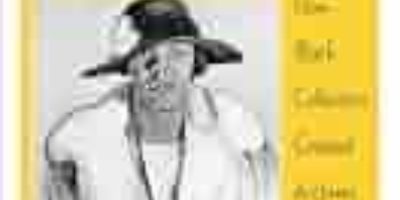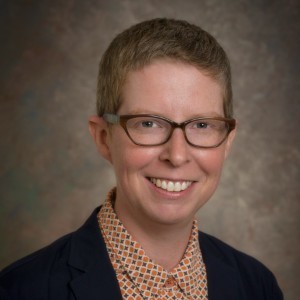May 01
A Century of Preserving Black Freedom: Libraries and Archives in the Tradition of Arturo Schomburg



Description
Our season concludes with “A Century of Preserving Black Freedom: Libraries and Archives in the Tradition of Arturo Schomburg,” an online event as part of the Schomburg Center’s centennial celebrations. Laura Helton, author of Scattered and Fugitive Things: How Black Collectors Created Archives and Remade History, will present on the role of Black collectors in the making and preserving of history. Vanessa K. Valdés, will discuss the life of one such Black collector and institution-builder, Arturo Schomburg, who she writes about in Diasporic Blackness: The Life and Times of Arturo Alfonso Schomburg. Ethelene Whitmire, author of Regina Anderson Andrews, Harlem Renaissance Librarian, will discuss the life of Andrews, a Harlem Renaissance writer and playwright who was also a longtime librarian at the 135th street library, which later became the Schomburg Center.
Speakers
-

Laura Helton
University of Delaware
Laura Helton, who holds a joint appointment in English and History, specializes in American literature and history of the twentieth century with an emphasis on African American print culture and public humanities. Her research and teaching interests include archival studies, material texts, race and memory, gender and sexuality, and the literary history of social movements. Her first book, Scattered and Fugitive Things: How Black Collectors Created Archives and Remade History (Columbia University Press, 2024), explores the emergence of African American archives and libraries to show how historical recuperation shaped forms of racial imagination in the early twentieth century. Professor Helton is a Scholar-Editor of “Remaking the World of Arturo Schomburg,” a collaborative digital editing project with Fisk University and the Schomburg Center for Research in Black Culture. In 2021, she co-edited a special issue of African American Review devoted to the Afro-Puerto Rican bibliophile Arturo Schomburg. Her 2019 article, “On Decimals, Catalogs, and Racial Imaginaries of Reading," won multiple prizes.
Fellowships from the Schomburg Center for Research in Black Culture Scholars-in-Residence Program, the National Endowment for the Humanities, and the Bibliographical Society of America have supported her research. Professor Helton's interest in the social history of archives arose from her earlier career as an archivist. She has surveyed and processed collections documenting the civil rights era, women's movement, and American radicalism for several cultural institutions, including the Mississippi Digital Library, Tamiment Library & Robert F. Wagner Labor Archives, CityLore, and the Schomburg Center.
-

Vanessa K. Valdés
Dr. Vanessa K. Valdés is a writer and independent scholar whose work focuses on the literatures, visual arts, and histories of Black peoples throughout the Western hemisphere. An engaging speaker, she served as a professor at the City University of New York for seventeen years, from 2007-2024, earning the rank of full professor. She is the editor of Let Spirit Speak! Cultural Journeys through the African Diaspora (2012); The Future Is Now: A New Look at African Diaspora Studies (2012); Racialized Visions: Haiti and the Hispanic Caribbean (2020); and, with Earl E. Fitz, Machado de Assis, Blackness, and the Americas (2024). She is the author of Oshun's Daughters: The Search for Womanhood of the Americas (2014) and Diasporic Blackness: The Life and Times of Arturo Alfonso Schomburg (2017). From 2021-2023, she co-curated Juan de Pareja, Afro-Hispanic Painter, an exhibition at The Metropolitan Museum of Art, and co-authored its exhibition catalogue, Juan de Pareja, Afro-HIspanic Painter in the Age of Velázquez (2023). She is the editor of the Afro-Latinx Futures series at the State University of New York Press and is the co-editor of the Global Black Writers in Translation series at Vanderbilt University Press.
-

Ethelene Whitmire
University of Wisconsin
Ethelene is a professor at the University of Wisconsin–Madison affiliated with the departments of African American Studies, German, Nordic, and Slavic, and Gender & Women’s Studies. She received an American-Scandinavian Foundation fellowship and a Lois Roth Endowment grant to support this project. She was also a 2016-2017 Fulbright Scholar and visiting professor at the University of Copenhagen’s Center for Transnational American Studies. Her first book, Regina Anderson Andrews, Harlem Renaissance Librarian, was published by the University of Illinois Press. Her second book project, Searching for a Rainbow: African Americans in 20th Century Denmark, is about African Americans who lived, performed, studied and visited Denmark. Educators, painters, social workers, writers, singers, jazz musicians among many others were drawn to this Scandinavian country. While many have written about African Americans in France, their experiences in Denmark have remained unexplored. Her project will answer several questions including: Why did African Americans go to Denmark? and What were their experiences while there? She argues that many of her subjects initially viewed Denmark as a utopia.